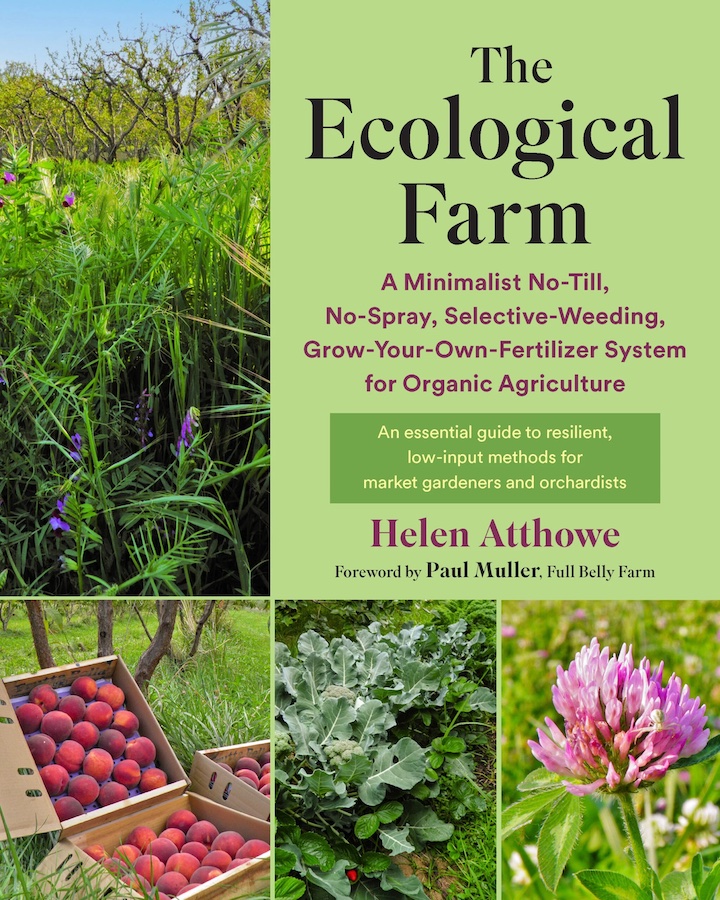
By Hellen Atthowe
Chelsea Green Publishing, 2023
384 pages, paperback, $44.95
To say that “The Ecological Farm” by Helen Atthowe is a holistic approach to farming would be understating the significance of years of research and farming experience, as well as the love for her farming partner, mentor and husband, Carl Rosato, that is evident throughout the book.
One of the subheadings in the book is “An Ongoing Experiment in Breaking the Rules.” While Atthowe followed traditional horticultural practices early on, readers can see a significant scientific and practical evolution to her approach over a period of 40 years.
In the forward, she states that in the 1970s and 1980s, Rosato was ahead of his time. He believed that “soil health driven by a diverse plant community above ground, feeding a diverse soil microbial community below ground” was key to the success of “a farm that grew more vibrant and productive over time,” specifically when it came to the peaches in his orchard.
Even now the concept that plant and microbe communities are an integral part of soil and, consequently, plant and crop health is not part of the mainstream thinking within agricultural practices.
In the “bottom up” approach to farming, Atthowe writes, “Soil microbes are the engine that drive all these processes that release plant nutrients.” Her words speak to the importance of the prevalence of soil fungi in healthy soil in the form of decomposer fungi and root (or mycorrhizal) fungi.
Atthowe approaches the health and well-being of her farm in the same manner as you would the human body. She considers and applies scientific principles to the interrelationships of plants, soil, water, bacteria, microbial biomass and microbially active carbon as well as insects and other external factors that contribute to the growth cycle and its systems. This way of thinking underscores that the health of all components contributes to the overall health of the farm.
The author is also able to methodically explain the processes used, the yields that resulted, and the changes she herself has made over the course of decades, with some examples occurring as recently as within the last three years. The observational, scientific and practical approaches are not static. Atthowe continues to experiment, learn and balance her system of farming with the natural world. One such example is “tithing to ecology”: this term that she and her husband coined describes allowing 5-10% pest damage to crops.
Early in the book she writes, “My vision is to discover how to more closely mimic natural ecosystems and how to farm well by doing less rather than more.” Atthowe’s ideas may be distilled into one simple concept: community. Whether these are plant, insect, animal, soil, bacteria or fungal communities, they are all important to the framework of a healthy farm ecosystem.
The decades of experience and experimentation found within the pages of “The Ecological Farm” are a blueprint with answers, proven techniques, ideas and valuable information and instruction to anyone interested in farming more in alignment with natural systems.
Ivonne Vazquez, Orono, Maine
